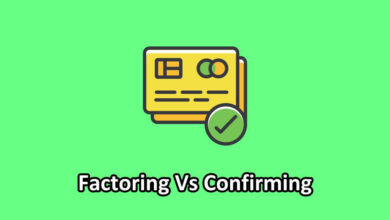When it comes to starting a business, the terms “firm” and “company” are often used interchangeably. However, there is a difference between the two that is important to understand, especially if you are starting a business or investing in one. In this article, we’ll explore their definitions, examples, differences, and the various types of firms and companies that exist. So let’s first have a look at a table that compares both firm vs company side by side.
Firm Vs Company
| Firm | Company |
|---|---|
| A firm refers to a profitable organization that is engaged in selling goods and services for profit, especially professional services. | A company refers to a legal entity or a business founded by one or more persons to engage in and operate a commercial or industrial venture. |
| Firms mainly involve in offering professional services. | Businesses are engaged in commercial, industrial, services, and other business transactions or activities. |
| It may or may not be mandatory for a firm to get registered under the act. | It is mandatory for a company to get registered under the Company Act. |
| The size of the firm is comparatively smaller than a company. | A company is bigger in size. |
| A firm is not a legal entity and thus it cannot enter transactions with a third party under its name. | A registered company is a legal entity. |
| Examples of a firm are accounting firms, graphic design firms, law firms, etc. | Private or public limited company, one-person company, etc. |
What is a Firm?
A firm refers to a profitable business organization that is engaged in providing or selling goods and services (usually professional services). This term can also be used to describe a business organization that is typically made up of individuals who offer their services or expertise to clients in exchange for payment. The term is commonly used to refer to professional services organizations, such as law firms, accounting firms, consulting firms, and so on.
Types of Firms
There are many different types of firms but three of the main types of firms are as follows.
- Sole proprietorship: A sole proprietorship is a business owned and operated by a single person. In such type of business, the owner is personally responsible for all debts and obligations of the business.
- Partnership: A partnership is a type of business that is owned and operated by two or more individuals. Partners share profits and losses and are personally responsible for the debts and obligations of the business.
- Limited Liability Partnership (LLP): A Limited Liability Partnership (LLP), is one where the business owners are not personally responsible for their debts and obligations.
What is a Company?
A company is a business organization that engages in selling goods and services, as well as all types of commercial, industrial, trading, or service activities. A company can be either a sole proprietorship, a partnership, a limited liability company (LLC), or a corporation. All types of companies must be registered under the companies act and policies.
Types of Company
The company can be categorized into the following four types.
- Corporation: A corporation is a business that is owned by shareholders and operates as a separate legal entity from its owners. A corporation can raise capital by issuing stocks and often has a board of directors to manage it.
- Limited Liability Company (LLC): An LLC is a type of business structure that combines the features of a corporation and a partnership. Owners of an LLC are referred to as members and are not personally responsible for the debts and obligations of the business.
- Joint Stock Company: A joint stock company is a type of corporation that is owned by multiple shareholders who operate under a specific set of regulations. The profits are divided among them, and each shareholder owns part of the company.
- Public Limited Company (PLC): A company that is publicly traded and owned by shareholders.
Key Differences Between Firm and Company
While comparing firm vs company, here we have included some of the key differences between them.
- Meaning: A firm is a business that sells services and products for profit, typically professional services. A company, on the other hand, is any business that generates income via the sale of goods and services and comprises all business trades and structures.
- Number of Individuals: The number of individuals or persons in a firm is lesser than the number of persons in a company.
- Liability: In a firm, partners have unlimited personal liability for the debts of the business. On the other hand, in a company, the liability of owners is limited to the amount of their investment.
- Size: Firms are usually smaller in size compared to companies, as firms typically have a limited number of partners. Companies, on the other hand, can have a large number of shareholders and employees.
- Regulation: Firms are generally subject to fewer regulations compared to companies, as firms do not have to comply with the same reporting and disclosure requirements as companies. Companies, on the other hand, are subject to more stringent regulations to protect the interests of shareholders and other stakeholders.
The following table briefly shows the difference between a firm and a company.

You Can Also Read:
- Difference Between Sole Proprietorship and Partnership
- Difference Between Businessman and Entrepreneur
- Difference Between Transfer and Promotion
Conclusion
In conclusion, the main difference between a firm and a company is their legal structure and the degree of liability for the owners. Firms are simpler in structure and are owned by one or more individuals, while companies are more complex legal entities that can be owned by one person or by many shareholders. Understanding these differences is important for anyone starting a business or investing in one.
You Can Also Read: More About Firms



One Comment